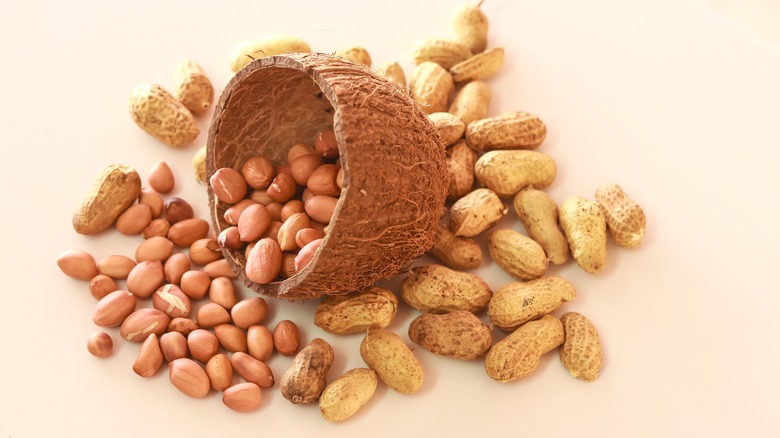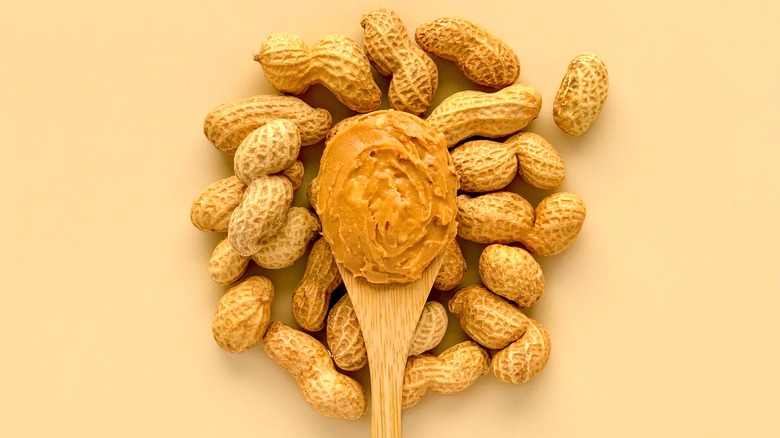How To Tell If Peanuts Have Gone Bad
You either love them or you're allergic to them; Peanuts have found their way into every meal of the day and the things that you can do with them as a chef are as exciting as they are tasty. Whether you're eating them raw, putting peanut butter onto a sandwich, making a sauce for your spring rolls, or mixing them as a garnish into the most delicious pad thai, everyone should be able to tell when their peanuts have gone bad at a glance and a sniff.
It can be odd to think of a nut going bad, but it can happen and it's not pretty. According to L'academie, peanuts, while they are very dry, have a high fat content, which means that rather than calling them "spoiled," most people say "rancid." Rancid refers to foods with high fat and/or oil content going stale and becoming extremely unpleasant to the taste and smell. Rancid peanuts will appear dry and shriveled as opposed to the shiny full appearance of a regular nut, and they will also smell sour and musty.
Usually, these signs will be enough to tell, but if you really want to make sure and give them a taste, the nuts will taste bitter and potentially sour.
How long and how to store peanuts
According to Does It Go Bad, peanuts typically will last a very long time before going bad (this is a good thing, but also can lead people to forget about their peanut stash until it's too late), but the exact length that they will last depends on what state they're in, how they've been prepared, and where you're keeping them. Whether they've been boiled, roasted, canned, and/or shelled and whether they're being stored in a pantry, in the freezer, or just in a bowl in your kitchen are all factors to consider. Generally it's always a good rule to just go off of the expiration date that comes on the packaging.
Because they are so dry, peanuts will keep for quite a while just by themselves, but if you want to maximize their lifetimes, you want to look for places that are cooler and dryer. However, if you chose to keep them in the refrigerator, you'll want to be sure to put them in an airtight container. And, if you opt for a colder option, the freezer, Glad recommends putting them in the deepest area of the appliance.

